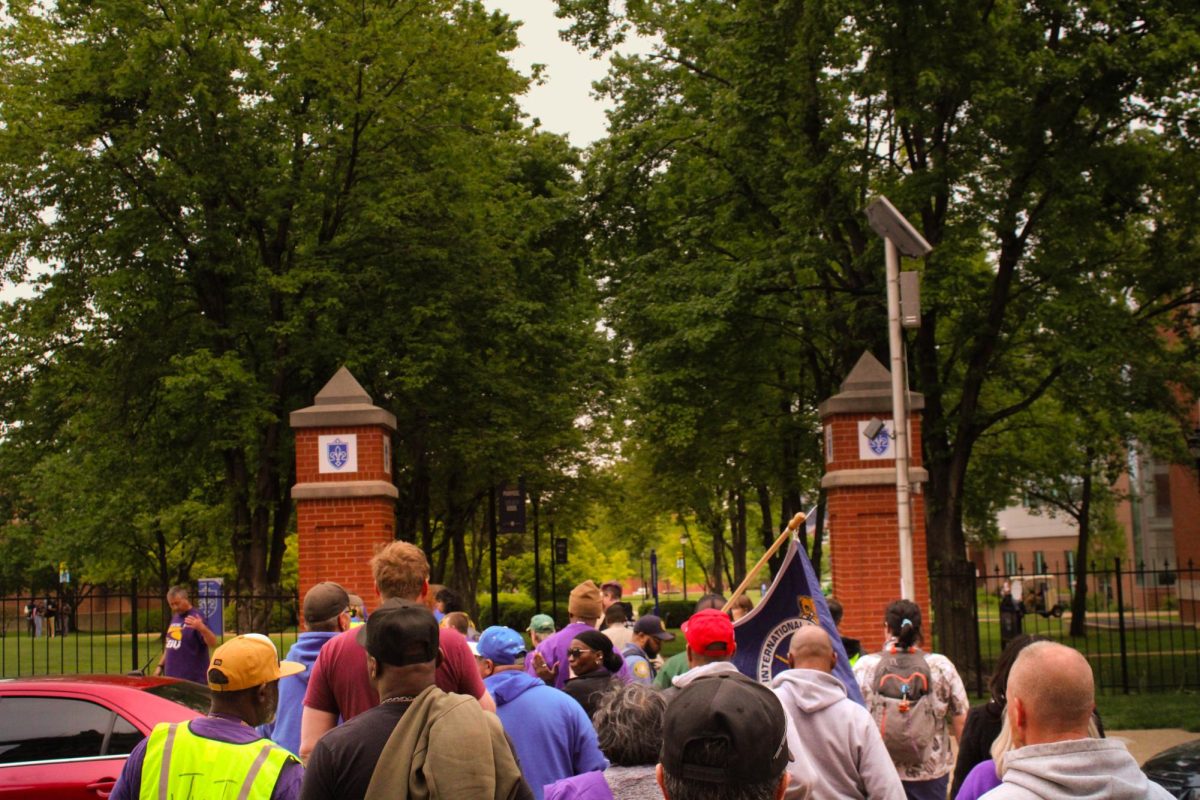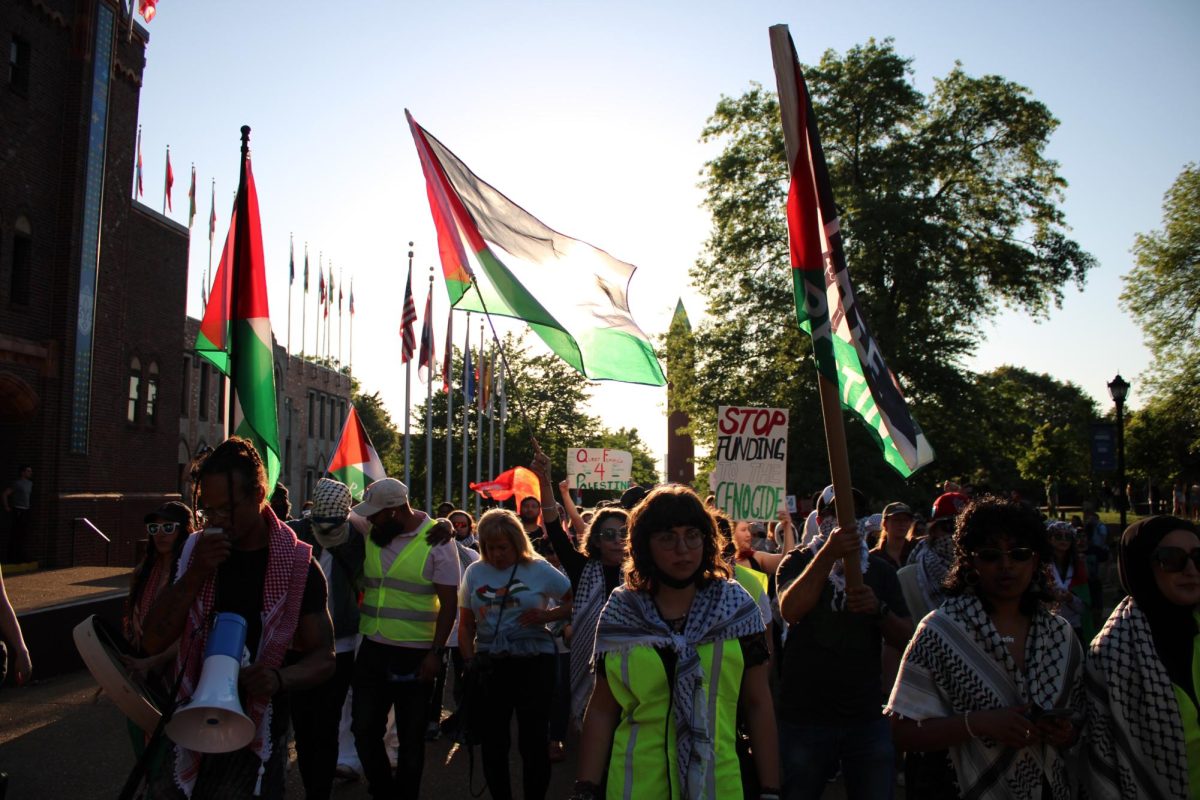U.S. armed forces have begun Operation Iraqi Freedom.
Last night, military and Bush Administration officials saw a “window of opportunity” to strike against senior Iraqi leaders and took action.
Several news agencies reported that two 2,000-pound bunker-busting bombs and 40 Tomahawk cruise missiles had been fired on a facility believed to be housing a meeting led by Saddam Hussein. No reports on the effectiveness of the strikes were available at press time.
Explosions were reported in the southeastern corner of Iraq, near the Iranian border and in Baghdad. Air-raid sirens were heard, and bursts from anti-aircraft munitions were seen across the sky of Baghdad at roughly 8:30 p.m. St. Louis time.
Shortly after, at 9:15 p.m., President George W. Bush addressed the nation, announcing that the U.S. military “began striking selective targets of military importance.”
“These are the opening stages of what may be a broad and concerted campaign,” Bush said.
Since Bush’s 48-hour ultimatum, Saddam Hussein had rejected the president’s demands. Shortly after the president’s speech, a statement from Saddam called for Bush to step down instead.
As of last night, U.S. troops were sitting along the demilitarized zone between Iraq and Kuwait, awaiting orders from the president.
Diplomatic efforts ended Monday when the United States, Spain and Great Britain refused to call a vote on their resolution that would have authorized force against Iraq. The decision was made after it was learned that the group could not gain the nine-vote majority needed to pass a resolution in the U.N. Security Council.
That evening Bush presented his demands to Saddam and the world, giving the Iraqi leader 48 hours to leave the country. Bush also called for Iraqi troops to disobey the orders of Saddam and surrender.
The United States dropped more than a million leaflets over Iraq, outlining directions for surrender. Since the speech, 17 Iraqi soldiers near the Kuwaiti border surrendered.
In an attempt to maintain peace, Bahrain’s King Hamad bin Isa Khalifa offered asylum to Saddam, but neither he nor any member of the Baath Party have accepted.
Tuesday, Great Britain’s House of Commons approved the deployment of 45,000 troops to Iraq. Australia also announced that it would provide 2,000 special-operations troops to the effort to remove Saddam.
British Desert Rats, special-operations troops specially trained for desert warfare, will play a major role in the campaign, said Timothy Lomperis Ph.D., chair of the political science department at Saint Louis University and a former U.S. intelligence officer during the Vietnam War.
Lomperis also pointed out that Australian troops have made a significant contribution
to the operation in Afghanistan and will play a role in the direction of air strikes in Iraq.
Analysts have hypothesized that Saddam and his supporters will attempt to draw the U.S.-led coalition into Baghdad, in order to lengthen the war.
“Saddam has not put huge defenses around the city,” Lomperis said, citing that a good number of Iraqi troops are scattered throughout Iraq and not centered around the cities.
Lomperis said allied casualties may also be greater than the Gulf War due to the use of more light infantry. However, these light-armored forces are better suited for what Lomperis calls “shock” assaults. These are composed of operations that would follow air strikes or other operations, causing confusion among Iraqi forces, allowing for the execution of more precise attacks, such as extraction of leaders and special-forces operations.
Despite the beginning of military operations, diplomatic action has not ended. French President Jacques Chirac announced that even though his nation opposed military force to remove Saddam, it would actively join the coalition if Iraqi forces used chemical or biological weapons in the war.
France and Germany also called for the United Nations to assist in the humanitarian effort that would be needed in the reconstruction of Iraq.






